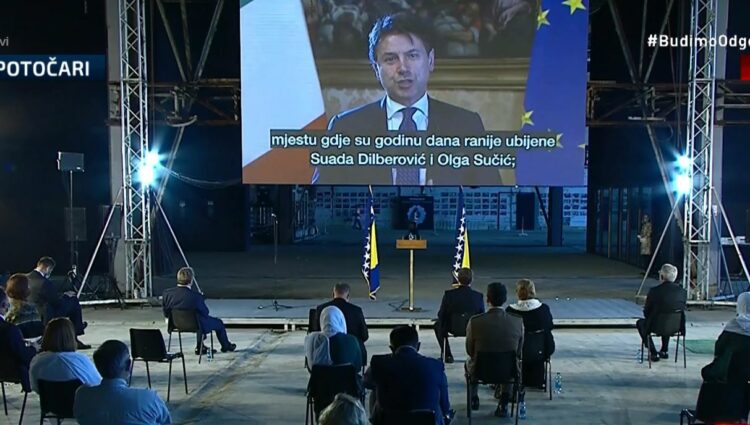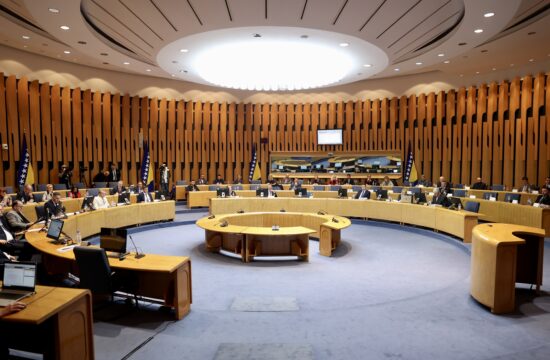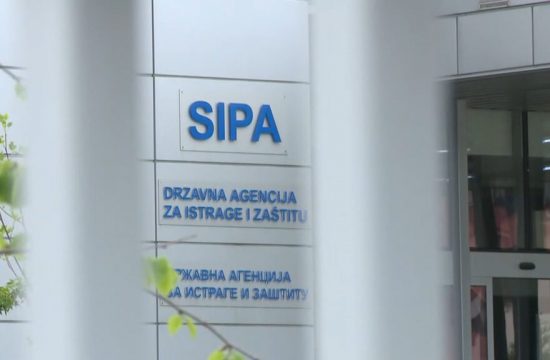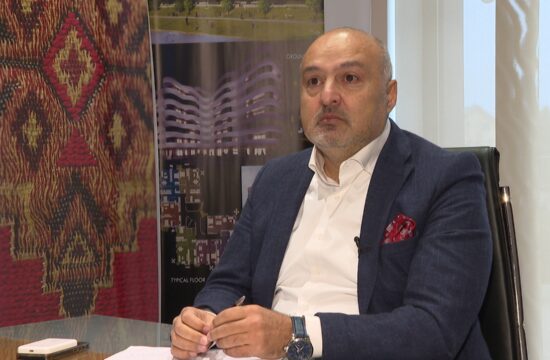
Twenty-five years ago, Europe was wounded in the heart, Italian Prime Minister Giuseppe Conte said Saturday in his message marking the 25th anniversary of the Srebrenica genocide.
“On the sad occasion of the 25th anniversary of Srebrenica genocide, I am addressing you with deep respect and commotion to pay tribute, on behalf of the Italian Government, to the victims, their families and the survivors.
Twenty-five years ago, Europe was wounded at its heart.
What happened in Srebrenica was a defeat of our common values. Honouring their memory is a moral obligation to us. Restarting from the respect for humanity, recognizing the suffering of all the victims and understanding that war is the most inhuman act are the starting point of every common journey.
That is why justice must take its course and it is crucial to keep prosecuting all those who are responsible for the atrocities that took place, because only if there is justice, it will be possible to alleviate, at least partially, the overwhelming suffering of those who are mourning innocent victims, to build the grounds for a real national reconciliation and look forward to a future of prosperity and integration.
Citizens of Bosnia and Hercegovina, many times in history, were victims of immense atrocities, but in the confluence of their cultures and their religions, they can truly represent what Europe aims to be: a place where diversity means richness, where human rights are upheld, and where old enemies can still reconcile in the name of life.
You are not alone in this journey: Italy has always been by your side, even in the darkest moments.
We suffered together, we welcomed the displaced persons that were running away from the war: some of them decided to stay in Italy and became Italian citizens; others came back to Bosnia and Hercegovina and maintained with our country a deep bond of friendship.
During the war, we also had Italian victims: Gabriele Moreno Locatelli, a bearer of peace, who was killed while he was trying to lay a flower on the Vrbanja bridge in Sarajevo, in the same place where Suada Dilberović and Olga Sucic died one year before; Marco Luchetta, Alessandro Saša Ota and Dario D’Angelo, journalists of the Italian public broadcasting company, killed in Mostar while they were reporting the war’s atrocities; I also recall Sergio Lana, Fabio Moreni and Guido Puletti, who died in Central Bosnia while they were bringing assistance to communities in need.
These Italians were in Bosnia and Hercegovina because they believed in peace and were convinced of the absurdity of war.
They believed in the possibility of a peaceful solution, like the 500 volunteers who arrived to Sarajevo in December 1992 with the “March of Peace.”
Italy is convinced that Bosnia and Hercegovina and all the Western Balkans may serve as an example of hope and coexistence for all Europe, to which this region belongs.
Today, like yesterday, we are with you, united by a deep friendship. We look forward together to our common European future in a perspective of peace, in a perspective of prosperity,” Prime Minister Conte said in his video message.




